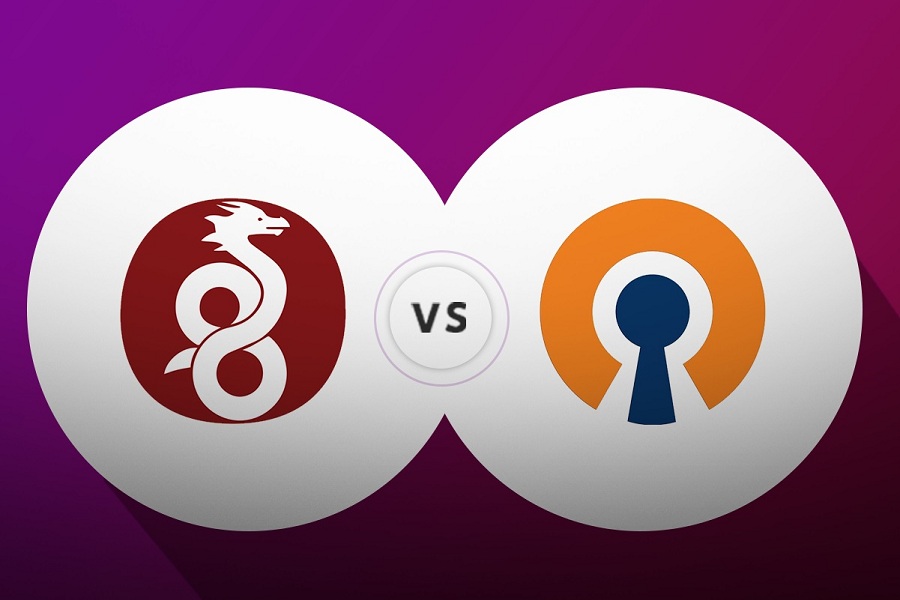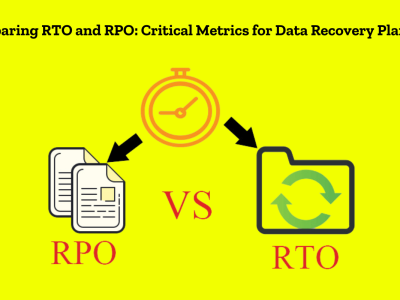Protecting your privacy and safety online has become very important in today’s digital world. Virtual Private Networks (VPNs) are very important for keeping our private information safe and letting us stay anonymous online. We will look at the main differences between WireGuard vs OpenVPN in this guide. We will talk about encryption, security, speed, availability, and more. After reading this, you’ll have a good idea of which VPN protocol fits your needs the best.
WireGuard vs OpenVPN: The Differences
Before exploring the technical nuances, let’s take a brief look at the origins and characteristics of each VPN protocol.
OpenVPN
OpenVPN, developed by James Yonan and released in 2001, has established itself as a reliable and secure open-source VPN protocol. Its flexibility, compatibility across various operating systems, and ability to bypass firewalls and Network Address Translators (NATs) have contributed to its widespread adoption.
WireGuard
WireGuard is a new VPN system that aims to be better than IPsec and OpenVPN by being faster, easier to use, and using less resources. WireGuard has a small script of about 4,000 lines and uses the latest encryption methods and cryptographic building blocks to make sure it works well and is safe. WireGuard was first made for the Linux kernel, but it now works on Windows, macOS, BSD, iOS, Android, and other systems.
Encryption: Comparing the Approaches
Encryption forms the bedrock of any VPN protocol, determining the level of security and privacy it can provide. WireGuard vs OpenVPN employ distinct approaches when it comes to encryption.
- OpenVPN’s Flexible Algorithms
OpenVPN leverages the OpenSSL Library to offer a wide range of encryption algorithms, including Camellia, DES, Triple DES, Blowfish, and AES. This flexibility allows users to tailor their encryption settings according to their specific requirements. However, the variable algorithms employed by OpenVPN’s codebase may result in a slight speed reduction compared to WireGuard.
- WireGuard’s Speed-Optimized Design
WireGuard, on the other hand, focuses on speed and efficiency by taking a more simple method to encryption. For security reasons, it uses encryption methods like Poly1305 and ChaCha20, which are much faster. WireGuard limits the encryption algorithms that can be used, but the ciphers that are used are very safe and have been through a lot of testing and development.
Security and Privacy Considerations
When entrusting our data to a VPN protocol, we must assess its commitment to security and privacy. Let’s explore how OpenVPN and WireGuard approach these crucial aspects.
- OpenVPN’s No-Log Policy
The strict “no-log” approach of OpenVPN makes it stand out. This means that the protocol doesn’t collect or keep any information that could be used to find out who someone is. As a result, users can feel safer about their privacy and identity. Privacy is important to OpenVPN, as shown by numerous third-party audits and its long-standing name in the VPN community.
- WireGuard’s Data Storage Approach
WireGuard and OpenVPN have some differences in how they handle privacy. WireGuard keeps users’ IP addresses on the computer until the system is restarted by default. Some users may be worried about this, but it’s important to remember that many VPN providers have built their own protocols on top of WireGuard to reduce or remove this data storage risk. Using features like Network Address Translation (NAT) or multi-hop setups can also help protect your privacy and lessen any problems that might arise.
VPN Client: User-Friendliness and Compatibility
The user experience offered by VPN clients can significantly impact the overall satisfaction and ease of use. Let’s compare the client applications provided by OpenVPN and WireGuard.
- WireGuard’s Growing Compatibility
While WireGuard was still in its early stages, there was only a Linux program available. This used to be the case, but now WireGuard has apps just for Windows as well as clients for other major operating systems. These clients make it easy for users to set up VPN tunnels and copy or export data. Keep in mind that you might need management rights to do some things with the WireGuard client.
- OpenVPN’s User-Friendly Approach
OpenVPN has had its main Windows client, OpenVPN Connect, for a long time. This client has an easy-to-use interface that makes it simple to add accounts and import connection information by URL or file upload. OpenVPN Connect is a stable and easy-to-use VPN client, but it might not have all the advanced features that WireGuard’s client does. Additionally, OpenVPN works well with many other programs and is built into trustworthy VPN services such as NordVPN, Surfshark, and hide.me.
Speed: WireGuard’s Performance Advantage
Speed is without a question an important thing to think about when looking at VPN protocols. Come with me as I compare the speeds of WireGuard and OpenVPN. WireGuard is famous for being very fast; in many tests, it regularly performs better than OpenVPN. WireGuard had great download speeds—often exceeding 277.9 Mbps—during our tests, while OpenVPN had trouble going above 30.64 Mbps.
Because it has less latency and faster throughput, WireGuard is a great choice for online games and other activities that need fast connections. It’s important to remember, though, that OpenVPN still offers fast and stable connections that make browsing the web smooth.
Availability: OpenVPN’s Wider Support
When picking a protocol, availability across VPN providers is one of the most important things to think about. OpenVPN is currently supported by more VPN services than WireGuard, which is slowly but surely becoming more popular. OpenVPN is used by a huge number of VPN providers because it has a long history of being the best system. More VPN services are likely to use WireGuard in the future as it continues to get better and show what it can do.
Our Recommendation: Choosing the Right Protocol
The choice between WireGuard and OpenVPN ultimately depends on your specific priorities and use cases. Let’s summarize the key considerations to help you make an informed decision.
- WireGuard: Streamlined Performance
WireGuard works best when speed and efficiency are important. It’s perfect for home users who want a fast and responsive VPN because its codebase is efficient and its security methods are optimized. However, WireGuard may not be as good for workplaces or people who want to stick to a “no-log” policy because it is still in its “experimental” phase and needs management rights in its client.
- OpenVPN: Time-Tested Reliability
OpenVPN is a safe and effective VPN service that has been around for a long time and is used by many people. With its wide range of devices and operating systems support, thorough testing, and strict “no-log” policy, it’s a great choice for people looking for a VPN protocol that they can trust. While OpenVPN may not be as fast as WireGuard, it offers stable and reliable performance.
Also Read: How to Change Netflix Region Without VPN? (Bypass Netflix Region Lock)
In Summary
WireGuard is a good choice for people who want to get online quickly, while OpenVPN is still a popular choice because it is reliable and protects your privacy. You can figure out which protocol is best for your VPN needs by looking at your individual needs and preferences.
With the information provided in this guide, you are now equipped to make an informed decision between WireGuard and OpenVPN. Choose the protocol that aligns with your priorities, whether it’s optimized speed or time-tested reliability, and enjoy a secure and private browsing experience.











